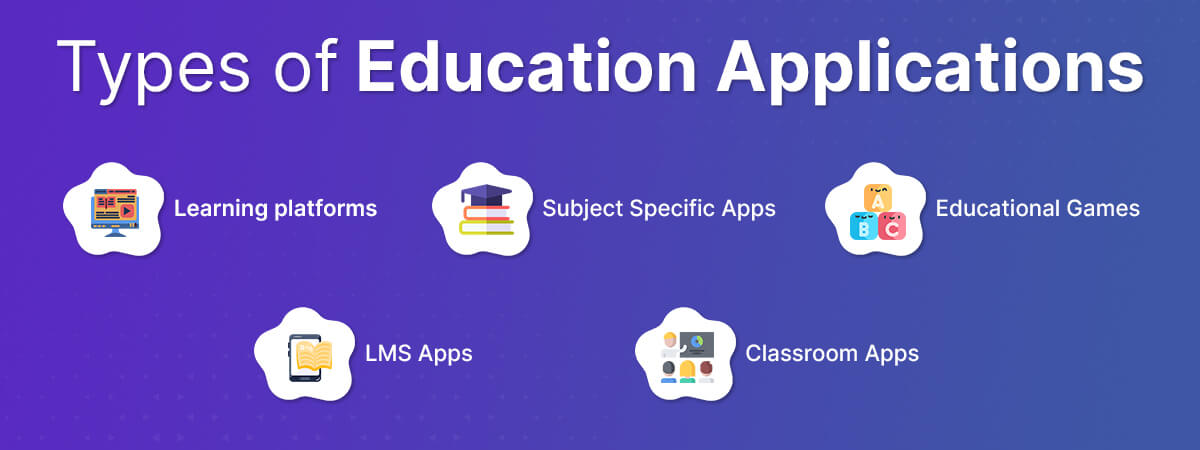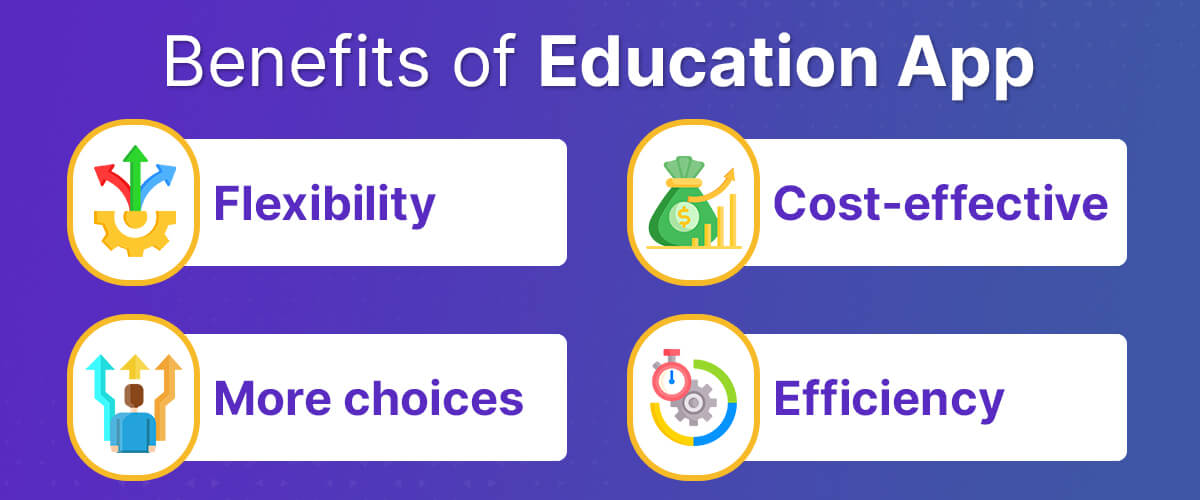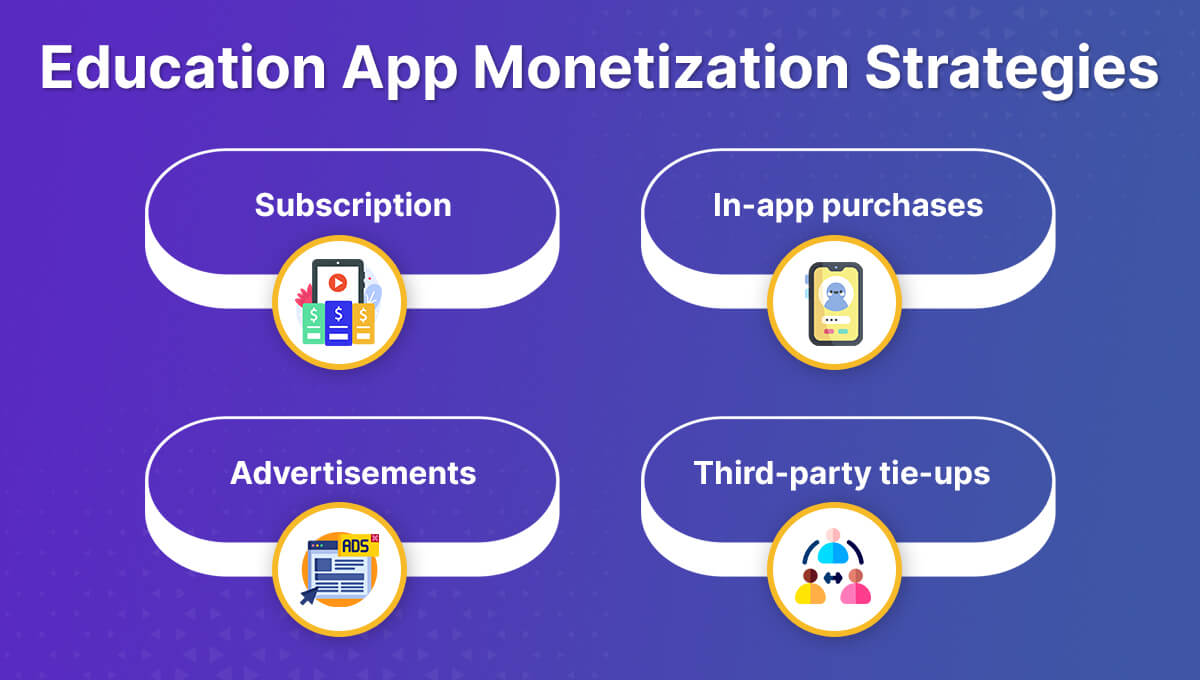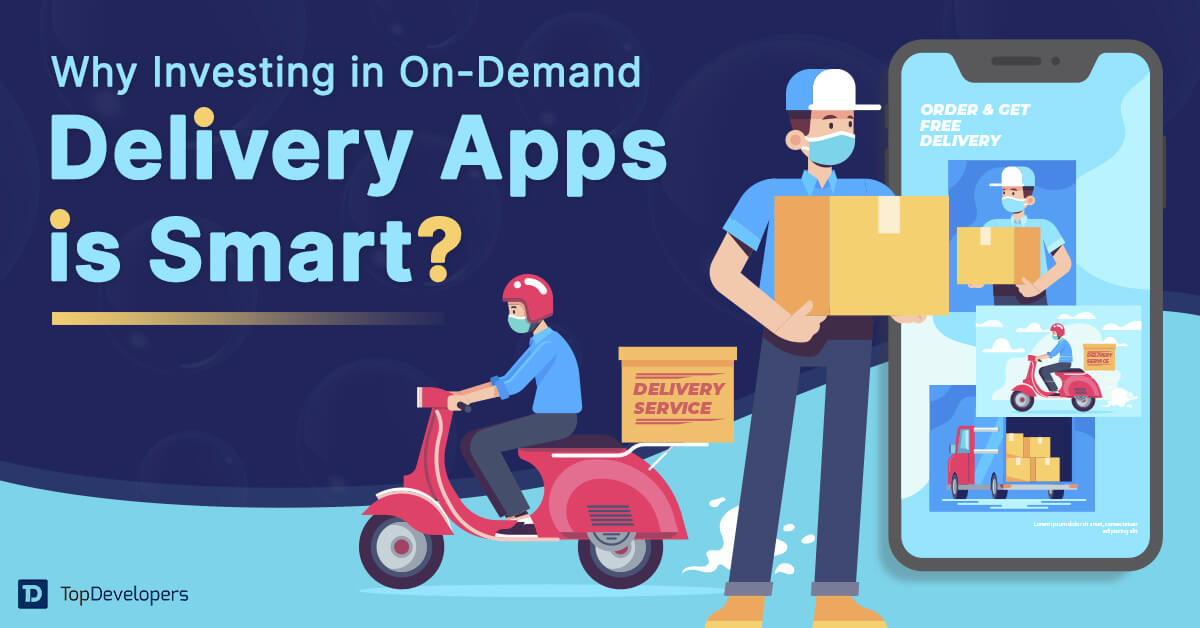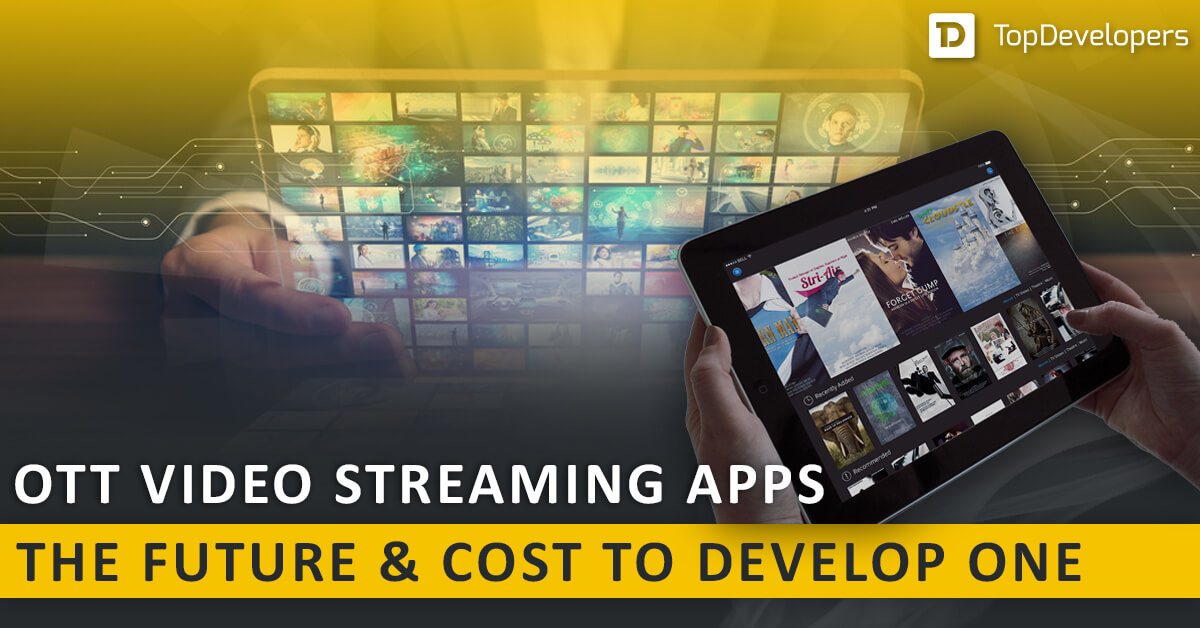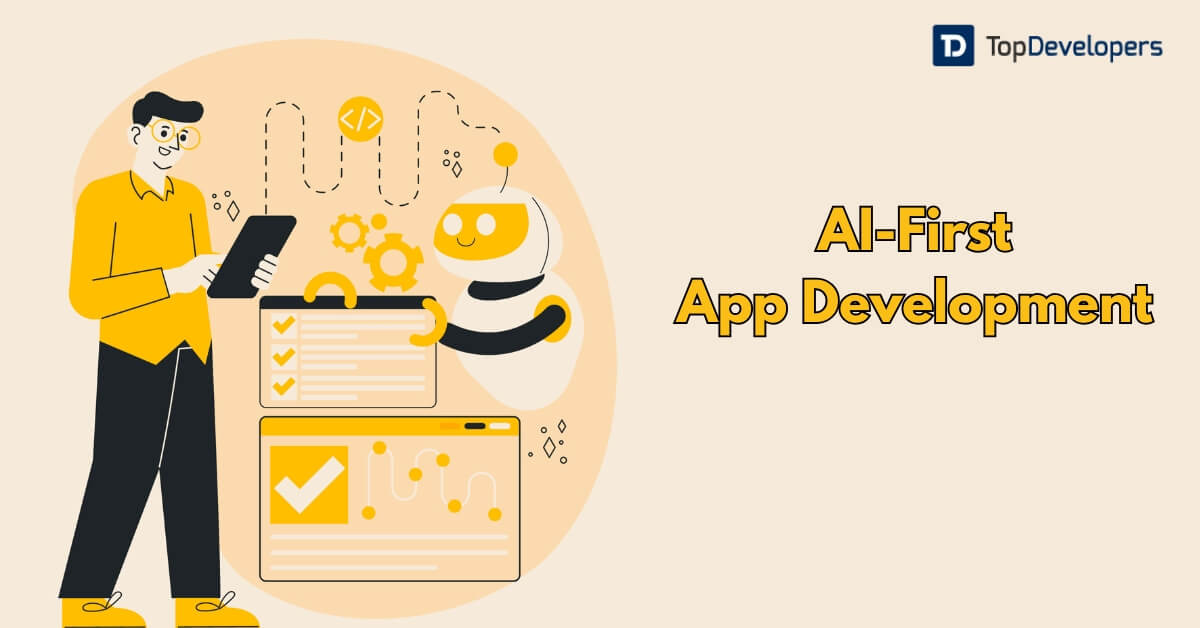
Let’s accept it: soon, the obligation to learn in the classroom setting and get a degree from a university physically will become a thing of the past. Skyrocketing mobile phone usage, increasing utilization of online educational resources, advancement in emerging technology, and personalized learning through smartphones are changing the education landscape.
Education app development has become a new norm in the education industry, whose market size is expected to reach $198.62 billion by 2030, at a CAGR of 23% during 2024 and 2030. Total revenue from education apps is expected to show an annual growth rate (CAGR 2022-2027) of 10.49%. The staggering growth in educational application development signals that the education app will drive the education and learning industry.
If you want to learn how to make educational apps, assistance from a top educational app development company is essential. Want to know more to set the education mobile app development process in motion? This blog is a treasure trove of details such as types of education apps, the process of building the app, technologies used for creating educational apps, different ways to monetize through EdTech app development, the benefits of educational app development, and the cost of building an educational app.
Table of Contents
- Types of Educational Apps for Effective Learning and Education
- Top Benefits of Mobile Apps in the Education Industry
- Steps to Success: Developing Your Education App
- What Are Effective Ways to Monetize an Educational Mobile App?
- Popular Technologies Used for Educational Application Development
- Top 6 Successful Learning Apps on the Market
- How Much Does it Cost to Make an Educational App?
- Taste Success With an Education App
- FAQ
Types of Educational Apps for Effective Learning and Education
Before you embark on building an app for your education institute, you will find different types of education apps that can be built. Browse different types of educational apps to find the one that is relevant to your requirements:
Learning Platforms
Learning platforms are educational apps that provide students with a wide range of courses they can take. Coursera, edX, and Udemy are some examples of online learning platforms. The platform can choose to hire instructors to upload the courses, or it can choose to act as a marketplace where independent course creators upload their courses. The learning platforms can offer certificates for students to aid them in their careers who have completed the online course successfully.
Learning Apps for a Specific Subject
Instead of offering a lot of subjects, certain learning apps focus on specific subjects. The idea behind building such an app is to appeal to an audience wanting to go in-depth about a particular topic. Duolingo is an example of such an educational app. With Duolingo, learners can learn any language. When you build a learning app for a specific subject, identify a niche with a lot of demand. Otherwise, you risk being stuck in a market with limited demand.
Educational Games
In gaming-style learning apps, the idea is to gamify learning and make it fun. Successful gaming apps have a strong story and gaming scenario that motivates the users to complete different game stages and acquire knowledge. The Brainzy, ABCya!, Roblox, and Chegg app are some examples of an educational gaming app. Furthermore, you can consider using the power of artificial intelligence in the education industry to deliver engaging educational games.
Learning Management System (LMS) Apps
Learning management apps are mainly used by large companies to provide training to their employees. An LMS allows the company to train employees in a shared online space. TalentLMS, Blackboard, Moodle, Brainier LMS, and Absorb LMS are popular examples of a learning management system app.
Classroom Education Apps
Classroom apps are another popular type of educational app. Schools, colleges, and coaching classes use classroom education apps to educate students. The apps act as a space where teachers, parents, and students can observe the students’ academic progress. Google Classroom, Apple Classroom, ClassDojo, iDoceo, and Klassly are some of the well-known apps for classroom education.
Assessment App
Assessment apps are popular online education app solutions that allow students to identify their level of understanding of specific subjects with tests and their results. It will enable students to participate in quizzes and practice tests and then provide personalized feedback, helping students know what they need to improve. Nearpod, Socrative, and Classkick are top apps for Assessment used by teachers.
Learning Management App
Educational institutions handle multiple activities within four walls, from learning workflow to administrative tasks. Learning management apps allow academic institutions to handle all of them (student grading, attendance control, communication, and work submission) under one solution.
Exam Preparation App
Preparing for exams and tracking progress and performance is a challenging job for students. Exam preparation apps allow students to do it effortlessly. The app helps students revise the online course material, provides tests and exam simulations, and provides results for exam performance. It helps them continuously improve and instill confidence. My Study Life, Pocket Prep, and EduRev are some of the top apps that can help to prepare for exams.
Top Benefits of Mobile Apps in the Education Industry
The first question that comes to mind when you think about how to create an education app, Is why people should use an education app in the first place.
Building an education app requires substantial time and effort on your part. That is why it is essential to ascertain whether enough people will be interested in your offering. One way to do this is to identify the benefits of an educational app. Educational apps can provide many benefits for students, teachers, and parents. Some of these benefits include:
Flexibility
Compared to offline mode, an education app offers learners the flexibility and convenience of learning from anywhere and anytime.
More Choices
Earlier, the learning choices were limited to the courses offered by local schools or colleges. An education app widens the selection of subjects that a student can learn.
Cost-Effective
An education app proves to be far less expensive than taking physical classes. This is because a tutor can provide education to more students and does not need to invest in infrastructure like buildings and benches.
Efficiency
Online learning proves to be an efficient method of learning. This is because the online learning app can provide a quicker and more organized way of learning for the students, and the students can skip commuting with online learning.
Steps to Success: Developing Your Education App
E-learning app development is a complex process, and you must take each step carefully to ensure that the end product meets your needs. Below are some app development steps to help you develop an educational app.
Define the Educational App Goals
Prepare a roadmap regarding the kind of educational app you want to build. It helps decide the features and functionalities you want to keep that resolve target audience needs and pain points.
For example, building a language learning app like Duolingo requires focusing on widespread language integration, creating a database of native speakers to keep as tutors, enabling one-on-one training, allowing the learners to see videos and audio, and facilitating taking tests to ingrain their learning.
Conduct Market Research
Instead of taking a blind risk, it’s better to conduct thorough research that helps identify gaps in the market, understand competitors’ offerings, and refine the app’s concept accordingly. To conduct market research, find apps similar to your idea on the app stores and evaluate the user reviews. It helps identify the gaps in your competitor’s offering and ensures including features that will eliminate this gap.
Outline Features
In-depth market research will help you identify the features that your education app needs.
Basic features that mobile apps for the education industry must have:
- Sign up/sign in to save progress
- Personal profile showcases the language course that users selected.
- Add courses that users want to learn.
- Make payment for the course availed
- Social sharing lets the world know about the university
- Mock practice tests to evaluate their performance
- Push notifications to stay informed about different messages from school.
- Student progress dashboard
Advanced features that you can opt for:
- Live video-streamed classes
- Gamification to make learning engaging
- AR and VR content make learning interesting
- Audio and video-based content are easy to consume
- One-on-one tutoring ensures personalized teaching
Mobile App Development Platform Selection
Before starting educational app development, you must decide whether to develop a native educational app for Android or iOS platforms or go for cross-platform app development. The right platform selection is essential. The educational app developers help you choose the best platform for your requirements according to your budget.
Hire an App Development Company
The next logical step is to find a reliable education app development company with a team of professional developers, designers, testers, and quality analysts with in-depth expertise and experience building educational mobile apps. Identify if their educational app development services include-
- Building robust functionalities that work to the notch
- Crafting an engaging and user-friendly design that delivers the best UX
- Rigorously testing the app for quality assurance
- Launch the app on different app stores following the guidelines
- Optimize the app using ASO techniques for decent ranking on the app store
What Are Effective Ways to Monetize an Educational Mobile App?
An education app is a lucrative business opportunity. One can create an educational app and monetize it in the following ways.
Subscription
In the subscription-based monetization model, you charge your subscribers a fixed amount monthly or yearly. Subscription is one of the most popular app monetization methods for mobile apps. This is because the learners pay a fee regularly only when they are willing to avail of the services.
ABCmouse.com is an app that provides a subscription-based service. The app’s target audience is preschool kids.
Advertisements
You can decide to keep your app free and choose to earn money by selling advertisement slots. Many companies that sell learning-related products, like stationery retailers, school and college bag manufacturers will be interested in advertising on your education app.
When choosing advertising as your preferred monetization method, you need to ensure that the ads you place on your app match the intent of your audience. Otherwise, the audience will be irritated with your ads and leave your app searching for less annoying educational platforms. Duolingo is an app that uses advertisements as a revenue source.
In-App Purchases
You can offer in-app purchases to your users to generate revenue. The paid features can include special online courses that are not available for free. You can also charge the users if they want a course completion certificate while keeping the course free. This way, you can attract both free and paid users.
In-app purchases can also include access to one-on-one sessions with tutors or the ability to unlock advanced learning modules. Apps like Memrise and Brainly follow the in-app purchase revenue model.
Third-Party Tie-Ups
You can earn significant amounts of money through tie-ups with third-party products and service providers related to education. For instance, stationary product sellers, universities, schools and coaching institutes can sell their services and products on your platform. You can earn a commission on the sales that happen on your platform.
Popular Technologies Used for Educational Application Development
The educational landscape is continuously thriving with technological evolution—emerging technologies allow academic institutions to create breakthroughs with innovative use cases. Browse popular technologies to experience the significant changes they can bring to your education mobile application.
Artificial Intelligence(AI)
AI technology is now used at scale to enable personalized learning experiences. Gen AI technology analyzes students’ performance and generates unique study material based on their capability. Also, quiz creation, auto-assessment, grading, performance tracking, and curriculum generation are the famous AI use cases in the education industry.
Augmented Reality (AR) and Virtual Reality (VR)
AR and VR are immersive technologies that engage users entirely in a new world while standing in the real world. AR superimpositions are well-known for making students understand the 3D world over real-world objects. VR transmogrifies reality by immersing the users in a virtual world, which helps avoid distractions in-classroom study.
Blockchain
Securing educational documents is important. Blockchain technology stands out for securely creating transparent digital records of educational institutions, teachers’ payroll, and students’ achievements. Such decentralized platform creation is also feasible using blockchain technology.
Cloud Computing
Data storage on local computers is quite a task for educational institutions. That’s where cloud computing technology stands out, as it enables data storage and performs complex computations on cloud servers. Hosting educational apps on remote servers ensures data is safely stored and more accessible.
Mobile Device Management
Managing mobile devices used for mobilizing educational organizations is essential. MDM (Mobile device management) technology ensures secure mobile device usage, management, and deployment.
Top 6 Successful Learning Apps on the Market
With growing mobile usage, learning apps have high popularity in serving different aspects of educational organizations. If you are looking to create an education app, successful learning apps will give you rich insights into what to consider, strategic planning, and other things.
- Kahoot!
- Duolingo
- Khan Academy
- Photomath
- Quizlet
- Handwriting Success
How Much Does it Cost to Make an Educational App?
The cost of developing an education app depends on the solution you envision, but typically, it varies between $80,000-$200,000. Several factors influence the price of education mobile app development.
- Complexity of the app’s concept
- Type of educational app
- Platform type (Native or hybrid development)
- The number of functionalities
- Technology stack used
- Need compatibility with wearable or smart TV
- Third-party integrations
- UI/UX of the app
- Location of the education app developers
- Number of developers involved
- Technology used – AI, AR, VR
One must understand that this is just a ballpark range, and to know the exact cost to develop an educational app, it’s better to connect with an expert team of mobile app developers. Opting for an education app builder is also an excellent choice for making an educational app with reduced time and cost. However, compromise on quality, scalability, and customization extensibility is obvious.
Taste Success With an Education App
Educational app development helps educational institutions address real-world challenges they face in bulk. Leveraging mobile power in conjunction with emerging technologies enables the creation of innovative educational mobile apps that serve the educational landscape better.
This blog explains the basic steps to create an educational app, followed by the types of education apps, development costs, the benefits of using an educational app for the users, and the monetization models of an educational app. The comprehensive educational app development guide lets you quickly enter this lucrative business.
If you need additional guidance on creating an education and learning app, connect with a reliable educational app development company that can help you with all your requirements.
FAQ
What are the critical considerations before creating an educational app?
The critical considerations before creating an educational app that impacts education business success are-
- Define target audience and learning objective
- Competition research
- Design and user experience
- Content and technology used
- Development, testing, and maintenance
How long does it take for e-learning mobile app development?
The time frame for developing an e-learning app ranges between 2 to 10 months, based on educational project specifications and requirements.
 Avantika Shergil
| Aug 12, 2024
Avantika Shergil
| Aug 12, 2024
Avantika Shergil is a technology enthusiast and thought leader with deep expertise in software development and web technologies. With over 8 years of experience analyzing and evaluating cutting-edge digital solutions, Avantika has a knack for demystifying complex tech trends. Her insights into modern programming frameworks, system architecture, and web innovation have empowered businesses to make informed decisions in the ever-evolving tech landscape. Avantika is passionate about bridging the gap between technology and business strategy, helping businesses build customized software and website, and understand about different tools to leverage effectively for their ventures. Explore her work for a unique perspective on the future of digital innovation.
